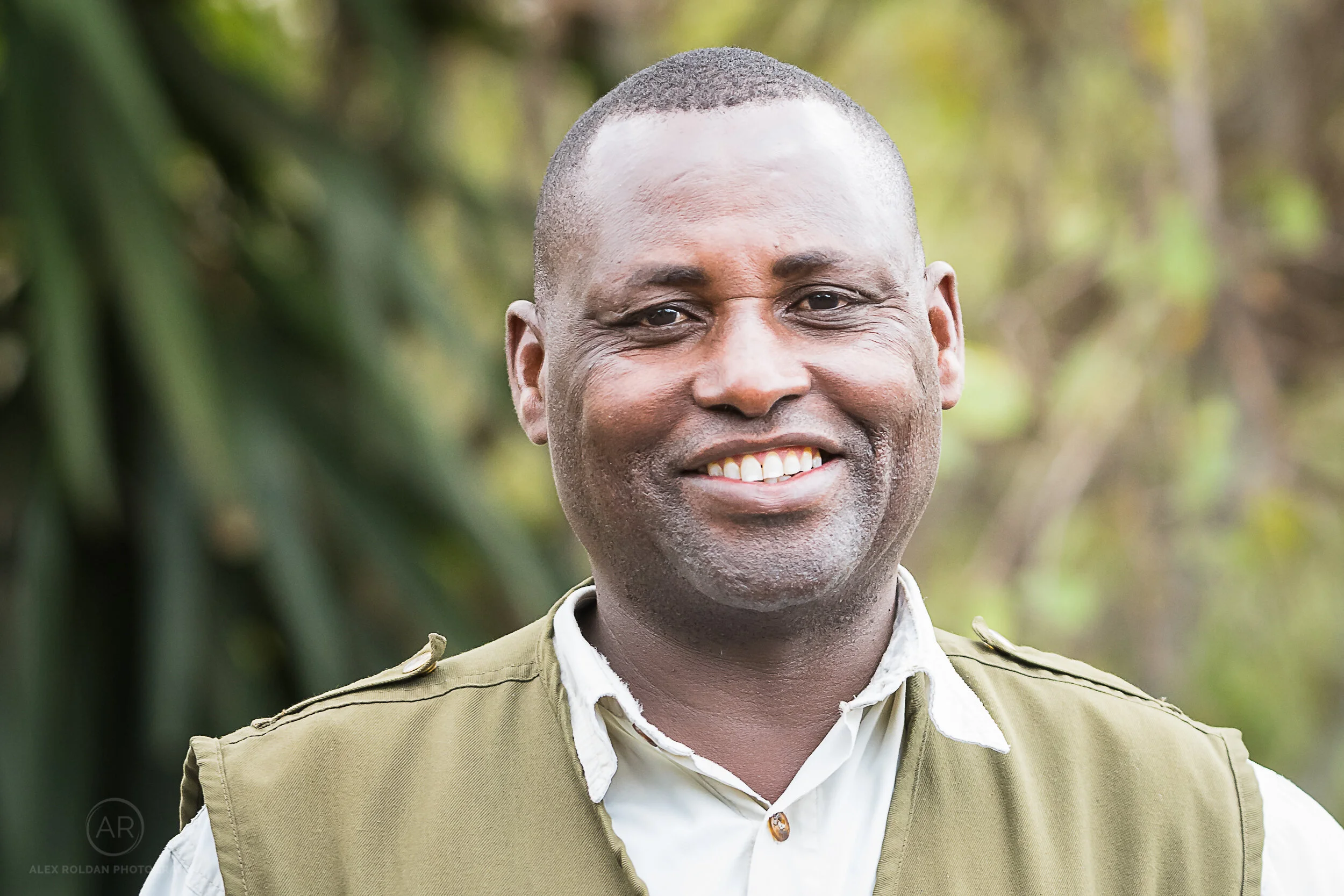Son of a poacher
Edited by Joseph Wahome.
Photography by Alex Roldan
My name is Mutulu Munyoki. But you can call me Evans. I am currently a guide at Finch Hattons Camp in Tsavo West National Park in southern Kenya. Although my name is Mutulu, most of the guests can’t pronounce this correctly so I settled on the name ‘Evans’ as it’s much easier to remember. I think I plucked it out of the air one day – it sounded right.
“I am the son of a poacher. My father was one of the most infamous traditional poachers of his generation and his area of operation was the Tsavo and Amboseli National Parks and surrounding areas.”
It is important to say that my father was reluctant to be a poacher. In fact, he hated it. Like so many other poachers in Kenya, it was his lack of financial stability that forced him to start this illegal trade, as sadly poaching is regarded as ‘good’ money to most local people. He told me that he would only hunt the old animals and would discourage his team from killing young or ‘healthy’ animals. Poaching to him was a means to an end.
My father would come back from poaching after several months away and, although poaching was not an easy discussion, I was always curious to hear about his stories and escapades in the bush. This is what sparked my interest in wildlife and ultimately, pursuing a career in guiding. He would teach me bushcraft – tracking scents and footprints, studying animal behaviour, finding water in the bush and many other essential skills that I would ironically use as a guide later on in life.
It was difficult growing up with a father who was mostly absent but I am grateful to him in many respects. Although the work he did was not moral, he sacrificed most of his youth, risking his life as a poacher so that myself and my siblings could all go to school and gain an education that would help us have successful careers.
After finishing school, I started working at the Amboseli National Park as a porter. I then studied and expanded my skillset to become a driver, and then an assistant safari guide. After a while I moved to the jewel of Kenya’s safari crown – the Masai Mara National Reserve. Here I became a research assistant and helped in collaring several lions and documenting big cat behaviour. This was exciting and knowing I was helping scientists understand lion movement and behaviour was extremely rewarding.
When Finch Hattons Camp set up in Tsavo West National Park in 1993, I knew I had to work there because it was near my home – the Kamba community – and it would give me the opportunity to see my wife and two sons regularly.
Photography by Amit Ramrakha
“There is never a bad day at my ‘office’ in Tsavo National Park.”
My most memorable day in the park was when I was out on a game drive with a young couple and we saw an elephant named Il-Tilal. He is a huge elephant with the largest tusks imaginable. The other famous large ‘tusker’ elephants in Kenya – such as Tolstoy, Craig and Tim* in Amboseli National Park – simply cannot compare to this one. Il-Tilal in the Maasai language means ‘extinct plant’.
One of my guests carelessly shouted at the elephant. I could tell from his body language that Il-Tilal did not like this and we were immediately in trouble. Il-Tilal charged at us fiercely and I had to reverse the safari vehicle 300 metres at such an impossible speed. Luckily he gave up chasing us and, after a few minutes, disappeared into the bush. My guests were in complete shock and the culprit apologised after realising he had put us all in great danger.
Finch Hattons Camp has partnered with local non- governmental organisations (NGOs) like the David Sheldrick Trust and the Tsavo Trust, to ensure that all animals in distress are rescued, treated and rehabilitated. We regularly report to them about all incidents with poachers and snares. My future goal is to attain a gold certification in safari guiding and start an NGO that will impart knowledge to the local kids. I would love to educate them about the need for conservation, protection of wildlife and our local culture and traditions. The ultimate goal would be to ensure that the next generations of Kenyans are conservation-savvy – so that more children become safari guides protecting (not poaching) our precious wildlife.
*Tim – the famous tusker elephant in Amboseli National Park – died in February 2020, age 51, whilst writing this article.
With thanks to Evans and the team at Finch Hattons Camp, Taran Gehlot, Amit Ramrakha & Alex Roldan.


